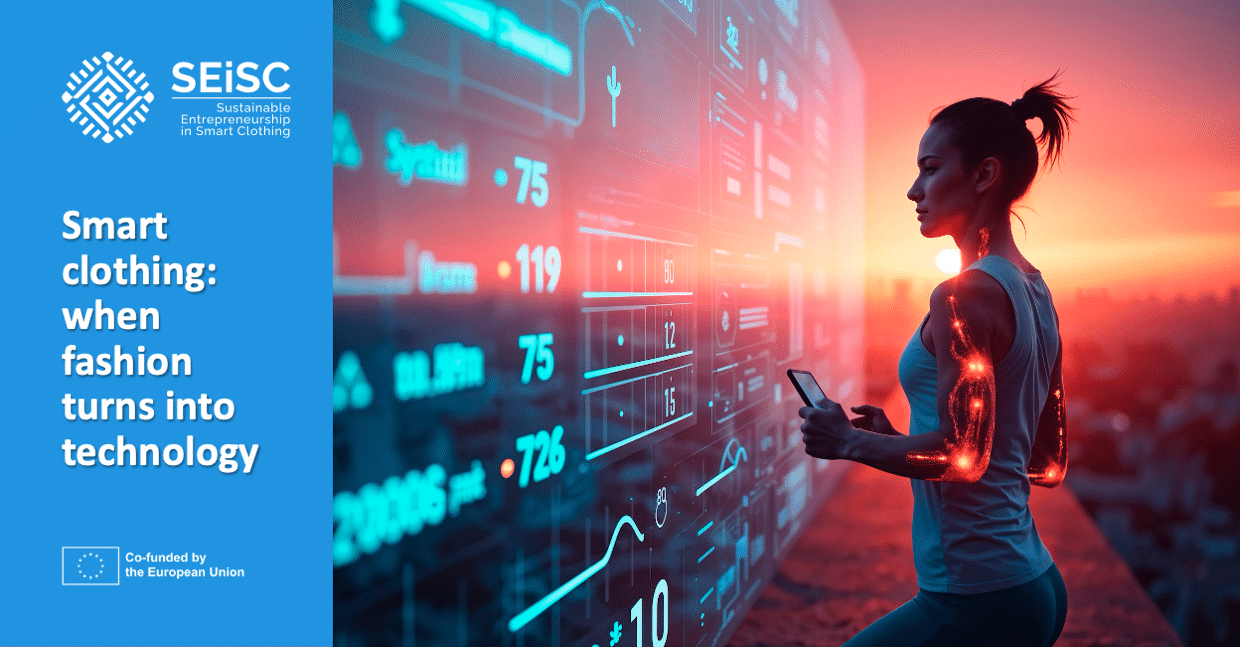The clothes we wear are no longer just about style or comfort, they’re becoming technology. The global smart clothing market, valued at $5.16 billion in 2024, is projected to surge with a remarkable 26.2% annual growth rate from 2025 to 2030. In other words, fabrics are transforming from simple textiles into intelligent devices.
At the heart of this shift is SEiSC (Sustainable Entrepreneurship in Smart Clothing), a Europe
an project training tomorrow’s entrepreneurs to thrive in this new landscape. Led by Finland’s Lounais-Hämeen koulutuskuntayhtymä and joined by partners in Italy, Spain, Turkey, Ireland, and Bulgaria, the program uses virtual simulations to teach students how to build sustainable business models for smart apparel.
So what exactly are smart clothes? Also known as high-tech apparel, smart wear, or e-textiles, these garments can track your body’s vital signs in real time, monitoring heart rate, body temperature, muscle tension, and even pulse. And it’s already a booming business: in 2024, apparel made up 57.6% of total smart clothing revenue.
But the future goes further. We’re now entering the era of ultra-smart textiles third-generation fabrics that don’t just measure but think. They sense, respond, and adapt to their environment, acting like a cognitive “brain” woven into your outfit.
Advances in sensors, wireless connectivity, and material science have made these garments more functional and user-friendly than ever. Yet the real breakthrough lies in merging technology with sustainability, a focus at the very core of SEiSC’s mission.
This represents a significant shift in technology and culture. Clothing is evolving into an interface that connects our bodies with the digital world. For entrepreneurs ready to explore this trend, smart clothing offers a variety of exciting opportunities that were once only imagined in science fiction.


